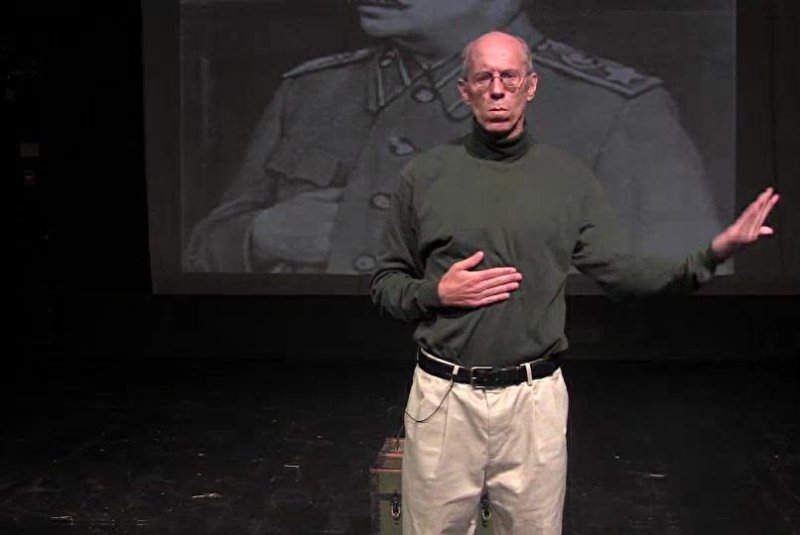John Feffer, director of Foreign Policy in Focus at the Institute for Policy Studies in Washington, traveled to North Korea to provide humanitarian assistance during the famine. His new play at the DC Arts Center in Washington examines North Korean society. Photo courtesy of John Feffer
NEW YORK, Feb. 14 (UPI) -- Sometimes you need to put on a show to help people understand North Korea, or to make sense of the country you visited 20 years ago.
John Feffer, director of Foreign Policy in Focus at the Institute for Policy Studies in Washington, is a frequent commentator on the regime in Pyongyang. He's also a playwright and performer who has staged one-man shows exploring biographical topics.
A new one-man play, Next Stop: North Korea is opening March 1 at the DC Arts Center, and is based on trips Feffer took to the country during the period of famine in the late 1990s.
Feffer traveled to North Korea as a member of an organization providing humanitarian assistance during those dark days. But trying to improve people's lives in one of the most repressive regimes in the world raised a dilemma, he said.
"This is of course, a dictatorial government, relatively isolated, with a closed society. There are a number of different ethical questions people have to ask themselves when they engage with North Korea," Feffer told UPI.
Feffer added some of those questions eventually led him to decide to stop visiting.
"After 2001, I was no longer interested in maintaining access to the country," he said. "I think that's the kind of challenge people face."
The analyst said there were several issues, including the perceptible strain foreigners' visits to the country would place on North Koreans. The other issue was a relative lack of freedom to speak openly about his North Korean experience while he traveled in and out of the country.
North Koreans in charge of Feffer's itinerary, as well as the schedule of other aid workers, would go to great lengths to provide food for them even when hundreds of thousands, possibly millions, of their fellow citizens were wiped out during what is officially known as the "Arduous March."
"We once visited a farm [to provide] inputs, and it was clear that even on this farm, where food is grown, they were having a difficult time," Feffer said. "They put out the finest spread they had for us to eat, but even that was quite meager in comparison to what you would have found 10 years earlier."
The former aid worker said it was important for the North Korean authorities to demonstrate life was normal and put their best foot forward with "politically motivated banquets."
Feffer said the gesture made him "profoundly uncomfortable," as he noticed other clues all was not well in the country.
Authorities tried to shield him and others from accessing places most hard hit by the famine, but Feffer said he could see even the elites were affected.
"What we did see was indirect evidence, how people even in Pyongyang were thin," Feffer said. "Our driver, it was clear he was not eating regularly. When we went out as a group, this was his opportunity to eat. And he ate quite a lot."
A cast of characters
The North Korean driver Feffer met may have been the inspiration behind one of the four North Korean characters he portrays in the play.
Feffer plays a driver, as well as a tour guide, a minder and a defector at different points in the performance.
"What I wanted to show was essentially the different stratifications of North Korea, stratifications based on loyalty, as opposed to economic class," Feffer said, adding the minder and tour guide represent the loyal upper crust of the elite.
"The driver presents himself as loyal [in the play], but actually he's wavering...but that's an individual thing. In North Korea a driver is actually a member of the elite."
Angela Kay Pirko, who directs Feffer, told UPI the play offers a unique perspective that draws from Feffer's personal experience.
Pirko also said she and Feffer reached out to the Korean-American community in Washington to build a relationship and open a dialogue about a play in which Feffer, who is white, is portraying a cluster of ethnic Korean characters.
"Obviously, we can't speak for everyone, but we did try to make sure, and the community appeared to appreciate" the play, Pirko said.
Feffer said all his characters speak without accents.
"They're just characters. And they are individuals," he said.















